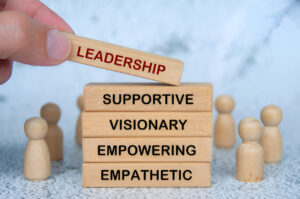
In a groundbreaking shift that is reshaping the landscape of global healthcare, the utilisation of remote workforce solutions in Africa is emerging as a pioneering force. The convergence of technology and healthcare expertise is not only revolutionising access to medical services but also paving the way for unparalleled advancements in patient care and outcomes. By unlocking the power of remote workforces, healthcare providers are transcending geographical barriers, bringing specialised care to underserved populations, and creating a more efficient and responsive healthcare system.
This transformative trend is not just improving healthcare delivery; it is also boosting economic opportunities and empowering local communities across the continent. As the world witnesses the profound impact of remote workforce solutions in Africa, the ripple effects are bound to be felt far beyond borders, ushering in a new era of healthcare excellence and accessibility.
The Impact of Remote Workforce Solutions in Healthcare
Remote workforce solutions are revolutionising global healthcare by addressing critical challenges such as physician shortages, high operational costs, and limited access to specialised medical services. By leveraging Africa’s growing talent pool of skilled professionals, healthcare organisations worldwide can ensure seamless service delivery through remote operations.
With rising demands on healthcare workers to focus on patient care and medical emergencies, administrative and back-office roles have become prime candidates for outsourcing. Many healthcare organisations are now turning to remote workforce solutions in Africa to manage non-technical yet essential operational tasks, allowing frontline medical professionals to dedicate their time to core healthcare responsibilities.
Advantages of Remote Workforce Solutions in Africa

- Bridging the Healthcare Gap: Africa has a wealth of skilled professionals who can provide administrative and support services remotely for global healthcare institutions.
- Cost Efficiency: Hiring remote workers from Africa significantly reduces labor costs without compromising quality, making healthcare operations more cost-effective.
- Improved Healthcare Focus: By outsourcing non-technical roles, healthcare providers can focus on essential patient care services without being overwhelmed by administrative burdens.
- Empowering Local Economies: Remote jobs create employment opportunities, boosting local economies and enhancing the standard of living.
- Flexibility and Scalability: Organisations can scale their workforce based on demand without the need for physical expansion.
- 24/7 Support Services: Remote teams can provide around-the-clock support for critical back-office functions, ensuring seamless healthcare operations.
Non-Technical Back-Office Roles in Healthcare Outsourced to Africa
Healthcare organisations are increasingly outsourcing the following non-technical yet essential roles to Africa’s remote workforce solutions:
- Medical Billing and Coding: Processing medical claims and ensuring accurate reimbursement for healthcare providers.
- Healthcare Customer Support: Managing patient inquiries, appointment scheduling, and general customer service.
- Data Entry and Electronic Health Records (EHR) Management: Handling patient records, updating electronic health systems, and ensuring data accuracy.
- Medical Transcription: Converting audio recordings of medical reports into written documents.
- Administrative Support: Managing calendars, coordinating meetings, and handling correspondence for healthcare executives.
- Finance and Accounting Services: Managing invoices, payroll, and financial records for healthcare institutions.
- Human Resource Management: Overseeing recruitment, onboarding, and compliance for healthcare organisations.
- Insurance Claims Processing: Managing healthcare insurance claims, verifying patient eligibility, and resolving billing issues.
By outsourcing these tasks to a remote workforce in Africa, healthcare providers can free up their in-house teams to concentrate on life-saving responsibilities while benefiting from an efficient, high-quality support system at a reduced cost.
Challenges and Opportunities in Implementing Remote Healthcare Solutions
While the benefits of remote workforce solutions in Africa are evident, some challenges need to be addressed:
- Infrastructure Gaps: Reliable internet and power supply remain concerns in certain regions, though significant progress is being made in improving connectivity.
- Regulatory Barriers: Different countries have varying regulations on telemedicine and cross-border workforce engagement.
- Data Security and Compliance: Ensuring compliance with international standards like HIPAA and GDPR is essential for handling patient data remotely.
- Workforce Training: Equipping remote workers with the necessary knowledge of healthcare regulations and best practices is crucial for seamless operations.
However, these challenges present opportunities for investment in digital health infrastructure, regulatory frameworks, and cybersecurity measures, ensuring a seamless remote workforce model.
Suggested Post: Tips for Hiring Remote Employees
Technology and Infrastructure Needed for Remote Healthcare in Africa
The success of remote healthcare services depends on a robust technological ecosystem, including:
- Telemedicine platforms for virtual consultations and remote patient monitoring
- Electronic Health Records (EHR) systems for secure data sharing
- AI-powered diagnostic tools and automation for administrative efficiency
- Reliable broadband connectivity and cloud-based healthcare management systems
Case Studies of Successful Remote Healthcare Initiatives in Africa
Several pioneering initiatives showcase the potential of remote workforce solutions in African healthcare:
- Telemedicine Networks: Platforms like Babylon Health and Zipline’s drone-delivery of medical supplies have expanded access to healthcare in remote areas.
- Medical Process Outsourcing (MPO): International hospitals outsource administrative tasks like medical coding and billing to African professionals, improving efficiency and cost savings.
- Remote Training Programs: Digital learning platforms enable African professionals to gain specialised skills in healthcare administration and remote support.
Training and Upskilling for Healthcare Professionals in Remote Settings
To maximise the potential of Africa’s remote workforce, investment in continuous training is vital. Programs focusing on:
- Telehealth protocols and patient communication
- Digital record-keeping and compliance standards
- Cybersecurity for patient data protection
- Virtual consultation and workflow management best practices
can enhance their efficiency and global employability.
Regulatory Considerations for Remote Healthcare Services in Africa
For sustainable growth, remote healthcare must align with:
- Government policies supporting digital healthcare employment
- International compliance standards (e.g., HIPAA, GDPR)
- Cross-border licensing frameworks allowing professionals to provide services internationally
Leveraging Telemedicine and Digital Health Platforms
Telemedicine and digital health platforms enable real-time consultations, remote diagnosis, and virtual patient monitoring, making healthcare more accessible, particularly in remote and underserved regions.
Partnerships and Collaborations Driving Innovation in Remote Healthcare
Successful implementation of remote healthcare solutions in Africa requires strategic partnerships between:
- Governments
- Healthcare institutions
- Technology providers
- Private investors
Collaboration can drive innovation, fund infrastructure development, and facilitate policy reforms that enhance remote healthcare operations.
Suggested Post: Challenges of Managing Remote Teams
Future Trends and the Potential of Remote Workforce Solutions in African Healthcare
The future of healthcare outsourcing in Africa lies in:
- AI-powered administrative support and automation
- Expansion of remote patient engagement solutions
- Blockchain adoption for secure health record management
- Growth of digital health startups providing specialised outsourcing solutions
As Workforce Africa pioneers innovative workforce solutions, we are committed to positioning Africa as the next frontier for global healthcare outsourcing. We are revolutionizing the industry by connecting world-class African talent with international healthcare providers while fostering sustainable economic development.
Specializing in top-tier Remote Workforce Solutions, we empower global healthcare providers to leverage Africa’s skilled professionals for cost-efficient, high-quality healthcare support services. Let’s partner to build a more accessible, efficient, and future-ready healthcare system.
Contact us today to explore how our Remote Workforce Solutions can transform your healthcare operations.






